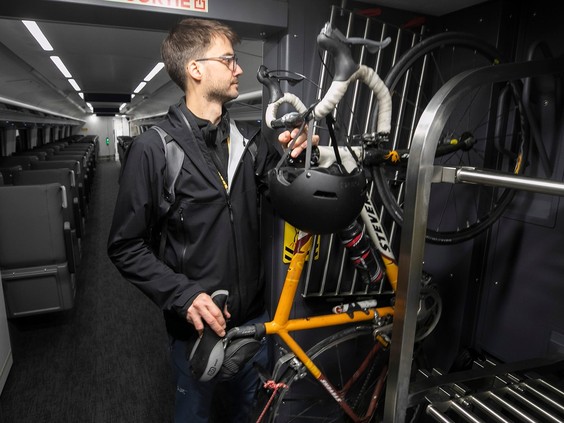VIA Rail Canada Inc.'s (VIA) policy regarding carry-on baggage recommends that passengers limit themselves to two pieces of carry-on baggage. On corridor trains, items of carry-on baggage should not exceed 61 cm by 41 cm by 25 cm (24 inches by 16 inches by 10 inches) in size or weigh more than 23 kg (50 pounds).
However, if no checked-baggage service is available (i.e., if a train consist does not include a baggage car), certain items that are normally prohibited, such as sports equipment and strollers, will be accepted.






